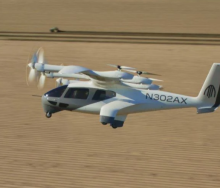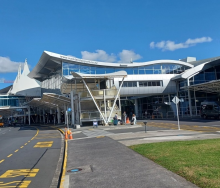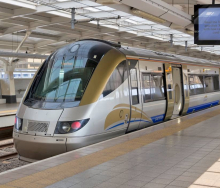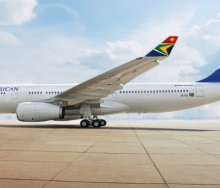Iata is to launch a special Africa programme to help rebuild aviation on the continent following the ravages of the pandemic.
The ‘Focus Africa’ initiative will take a many-pronged approach, including public-private partnerships, to help the continent strengthen and reinforce its aviation sector, according to an Iata online press conference on April 3.
Africa lost US$3,5 billion (R62,4 billion) in the years 2020-2022, according to Iata. And Iata estimates further losses of US$213 million (R3,8 billion) in 2023.
Despite the African continent having 18% of the global population it has only a 2,1% share of global aviation, so there is clearly room for immense growth in the industry, which would bring more of the commercial and social benefits that aviation is known to bring – principally, connectivity, jobs and better growth in the larger economy.
Iata forecasts a global return to profitability for the industry in 2023, and full recovery by 2024. It expects airlines to start posting small profits in the 2023/2024 fiscal year, and passenger numbers to return to pre-pandemic levels.
The association’s figures show that the aviation industry on the African continent has recovered to 93% of its pre-pandemic dimensions. Although the picture appears better than the overall industry, most (80%) of the travel taking place in Africa is international travel (mostly by foreign carriers who benefit from the travel), while domestic travel (where the vast majority of the revenues remain in the country in which the travel takes place) is at only 20% of all the air travel.
Another problem highlighted in the presentation was that the recovery in Africa is not evenly spread - some regions are recovering much faster than others, with Southern Africa lagging behind other African regions.
Recovery in Central/Western Africa is expected to exceed 2019 figures this year, says Iata. Eastern and Northern Africa might fully recover this year and exceed 2019 levels by 2024.
Focus Africa launches
Iata is now launching Focus Africa to strengthen aviation’s contribution to Africa’s economic and social development and improve connectivity, safety and reliability for passengers and shippers.
Sustainably connecting the African continent internally and to global markets with air transport is critical for bringing people together and creating economic and social development opportunities. It will also support the realisation of the UN’s Sustainable Development Goals (UN SDGs) for Africa – especially the goal of lifting 50 million people out of poverty by 2030.
Iata emphasises that in particular, trade and tourism rely on aviation and have immense unrealised potential to create jobs, alleviate poverty, and generate prosperity across the continent.
Africa has a solid foundation to support the case for improving aviation’s contribution to its development. Pre-COVID aviation supported 7,7 million jobs and US$63 billion (R1,13 trillion) in economic activity in Africa. Projections are for demand to triple over the next two decades.
“Africa stands out as the region with the greatest potential and opportunity for aviation. The Focus Africa initiative renews Iata’s commitment to supporting aviation on the continent. As the incoming Chair of the Iata Board of Governors, and the first from Africa since 1993, I look forward to ensuring that this initiative gets off to a great start and delivers benefits that are measurable,” said Yvonne Makolo, CEO of RwandAir and first female Chair of the Iata Board of Governors (2023-2024).
"The limiting factors on Africa’s aviation sector are fixable. The potential for growth is clear. And the economic boost that a more successful African aviation sector will deliver has been witnessed in many economies already. With Focus Africa, stakeholders are uniting to deliver on six critical focus areas that will make a positive difference. We’ll measure success and will need to hold each other accountable for the results,” said Willie Walsh, Iata’s DG.
The six focus areas are:
- Safety: Improve operational safety through a data driven, collaborative programme to reduce safety incidents and accidents, in the air and on the ground.
- Infrastructure: Facilitate the growth of efficient, secure, and cost-effective aviation infrastructure to improve customer experience and operational efficiency.
- Connectivity: Promote the liberalisation of intra-African market access through the Single African Air Transport Market (SAATM).
- Finance and Distribution: Accelerate the implementation of secure, effective and cost-efficient financial services and adoption of modern retailing standards.
- Sustainability: Assist Africa’s air transport industry to achieve the “Nett Zero by 2050” emissions targets agreed to by industry and ICAO member states.
- Future Skills: Promote aviation-related career paths and ensure a steady supply of diverse and suitably skilled talent to meet the industry’s future needs.
Partnership
“Partnerships will differentiate the outcome of Focus Africa from previous efforts to stimulate Africa’s development with air transport. By partnering, stakeholders will effectively pool their resources, research, expertise, time and funding to support the common goals of the six work areas,” said Kamil Al Awadhi, Iata’s Regional VP for Africa and the Middle East.
The partners will be announced and join forces in Addis Ababa, June 20-21, to officially launch the Focus Africa initiative, and more details will emerge for each task area.
“The tasks for Focus Africa are not new. Work is already underway as part of the work of Iata and other stakeholders in Africa. But after the financial trauma that the pandemic brought to African aviation, we are at a unique time of rebuilding. By launching Focus Africa now, we can ensure that the recovery from COVID-19 moves aviation to an even better place than we were in 2019,” said Al Awadhi.














